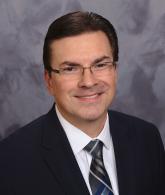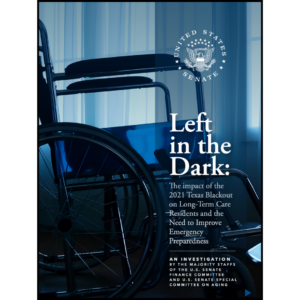Remembering your community’s first responders this holiday season
The holiday season of 2012 is here faster than I believe any of us ever expected. It is certainly a time to reflect and show appreciation for people who are important to us. That’s why I believe it’s a great time of year to acknowledge your community’s emergency responders and let them know how important they are to your long-term care facility.
As a retired deputy fire chief/fire marshal of a Chicago-area suburb, I had the privilege of working in a jurisdiction that had several LTC facilities including a large retirement community (CCRC). It was the practice of this campus—which included multiple levels of care as well as independent living apartments—to host a buffet luncheon each year around the holidays to allow residents and staff to express their gratitude to those in the community-at-large that provided essential services.
The annual invitation was extended to the community’s “first responders,” including the fire department, police department, county sheriff and EMS providers. Additionally, the local pharmacists at the drug stores, bus drivers, mail carriers and just about anyone that provides services to the facility were also included in this holiday tradition.
Now, just in case anyone reading this is thinking, “Really? Isn’t it their job to provide services?” I say, of course it is. But it is amazing to see what a little bit of fellowship can promote. While it is typical for residents and staff of a LTC facility to have interaction with first responders during an emergent event, it is not as common for these groups of people to be together in a social setting. This type of social interaction helps LTC facilities and providers of important services develop a collaborative relationship that is not only premised on an emergency or some other type of problem.
I am simply suggesting that given the risks your community’s firefighters, police officers and paramedics encounter on a daily basis, it might be a nice gesture to send a couple of pizzas over to the fire station every now and then or invite the police officers on your beat over for lunch occasionally. It shouldn’t take a formal complaint or call for service that didn’t go so well to be the reason you connect with these folks outside of an emergent situation.
I challenge LTC providers to think of creative ways to develop solid and meaningful relationships with their community’s first responders and providers of other essential services that will be mutually beneficial in good times as well as bad times.

Stan Szpytek is the president of consulting firm Fire and Life Safety, Inc., in Mesa, Arizona, and is the Life Safety/Disaster Planning Consultant for the Arizona Health Care Association and California Association of Health Facilities. Szpytek is a former deputy fire chief and fire marshal with more than 35 years of experience in life safety compliance and emergency preparedness. For more information, visit www.emallianceusa.com or email Szpytek at Firemarshal10@aol.com.
Related Articles
Topics: Disaster Preparedness , Leadership











